Hold onto your hats, ladies, and gentlemen. You’re about to witness heresy. This is an unvarnished digital nomad’s guide to Chiang Mai, Thailand – that means a balanced view of the place that has become, thanks to the marketing efforts of many a digital nomad huckster, the “Mecca of Nomadism”.
Don’t worry, it’s not all bad. In fact, it’s a pleasant enough place that we’ve spent more than a year in Chiang Mai ourselves, but (and it’s a big but) it’s not all it’s been made out to be either and both first time and experienced digital nomads might want to give it some thought before packing their bags for Northern Thailand.
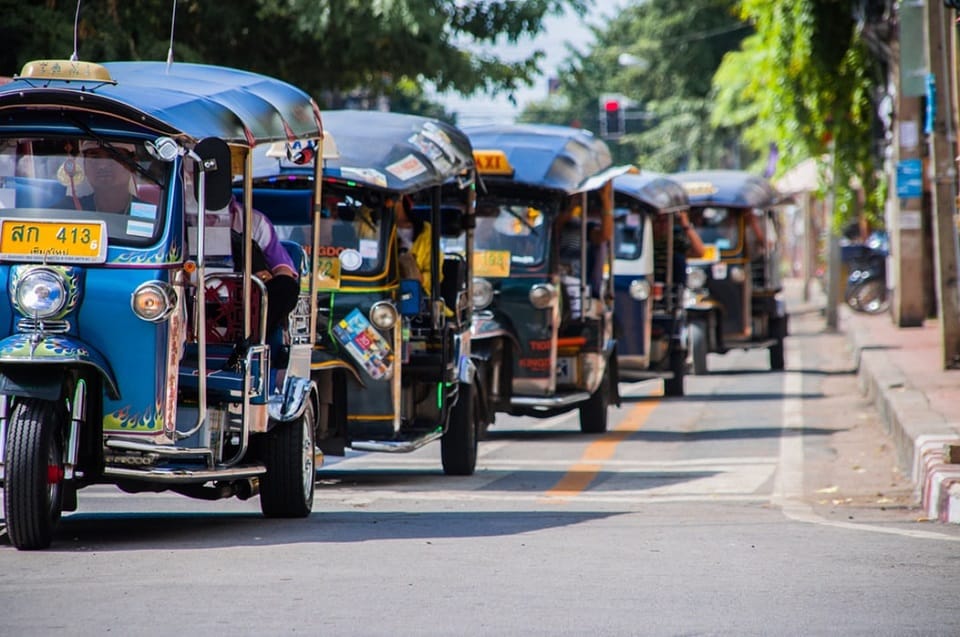
Table of Contents
How We Will Tackle Chiang Mai
We’re going to break this guide into two parts. The first part is a wholly factual (or at least as factual as our experience and research can be – nobody’s perfect) look at what life in Chiang Mai is like and how you can get the most out of it.
The second part is our opinion of Chiang Mai. This may be valuable to you, it may not – we’ll leave you to make up your mind because being a digital nomad is all about making up your own mind.
The Truth Of Being A Digital Nomad In Chiang Mai
To make this section manageable, we’ve included a ton of section headings – if you think you don’t need something, feel free to skip straight over it (we won’t tell if you don’t).
Why Chiang Mai For A Digital Nomad?

OK let’s take a quick look at what Chiang Mai has going for it:
- It’s cheap, it’s not THE CHEAPEST location in South East Asia (or even Thailand) but it’s certainly lower cost than Bangkok, the islands, Pattaya, Phuket and other big-name destinations in Thailand.
- It has seasons. This may sound daft but spend a couple of years on the equator and you’ll start to miss Winter. It never gets truly “cold” in Chiang Mai and the seasons break things up nicely.
- It has Lanna culture. So does the rest of Northern Thailand, mind you, but the original Kingdom of Lanna once revolved around Chiang Mai.
- It has temples. Lots of temples. Let’s be blunt about this – there may be nowhere else that has more temples than there are days of the year. If you’re interested in Buddhist culture, Chiang Mai’s a great place to be.
- The digital nomad community. There is probably, no greater concentration of digital nomads in South East Asia, though Bali and now Da Nang probably give it a run for its money.
- Co-working is plentiful. The city is full of cheap(ish) co-working spaces and Internet connections are reliable too.
Why Not Chiang Mai As A Digital Nomad?
There are also some concrete reasons to avoid Chiang Mai:
- The burning season. From Feb to Apr and possibly into May now, the city is covered in a foul choking smog. We cannot stress how unpleasant this can be. While this leaves every expat and nomad whining on social media, nothing ever gets done. In a moment of pure insanity, they’re now trying to blame the burning on mushroom pickers… in reality, it’s industrial and it’s not going to change.
- The hot season. As the burning season drops off, the heat rises and until about October – it’s both hot and humid. There are no beaches, nowhere to chill out in the heat (though most condo complexes have a pool) and what is normally a walkable city just isn’t much fun.
- The lack of nightlife. If you want to party, Chiang Mai is a poor destination. There is very little in the way of nightclubs and late-night entertainment and what little there is tends to rub shoulders with the sex trade. It’s not that you can’t have a good time for a week or so but it gets stale pretty quickly after that.
- The digital nomad community. It may be big but it’s packed to the gills with scammers who like to take advantage of new nomads and the community is often completely clueless and their lack of business and cultural awareness is often astonishing to anybody who isn’t just off the plane.
The Most Important Things To Know About Customs, Culture, and Language in Chiang Mai
Thailand is full of quaint customs and traditions. Even if you stay for a lifetime you will never master them all. Fortunately, the locals are generally sympathetic to the incompetence of foreigners and won’t give you a hard time about this. However, there are a few exceptions that you are expected to understand:
- Never touch somebody’s head. This is the most sacred part of the body – you’re asking for a fight if you do.
- Never use your feet to point with or to touch other things. This is the most sacrilegious part of the body, again expect a fight if you don’t comply.
- Dress conservatively when you can. Thais don’t dress in beachwear if they’re not on the beach. Ladies should cover shoulders, bellies, and thighs and men should wear shirts and trousers. If you don’t obey these rules in temples – expect to be angrily evicted.
- Don’t go in for public displays of affection. You can’t kiss, smooch, cuddle, etc. handholding is OK.
- Never touch a monk (doubly so if you are a woman). Don’t take their photographs without permission. Give up your seat for a monk if asked.
- In the movies when the Royal Anthem (which is often confused with the national anthem) plays, you have to stand up.
- Speaking of the Royals, Thailand has very strict laws regarding respecting the Royal Family, don’t say anything bad about them, don’t deface their image and don’t even take a selfie if the king’s picture is visible. The threat of jail for failing to respect these laws is very, very real.
- Don’t get angry. Never interfere if somebody else is angry. You could end up getting killed if you do.
Some of this ought to be common sense but somehow, it never is. Please be aware that while you will not be reprimanded for dressing badly (outside of temples), nobody will have any respect for you if you behave that way.
Do You Need To Learn Thai?
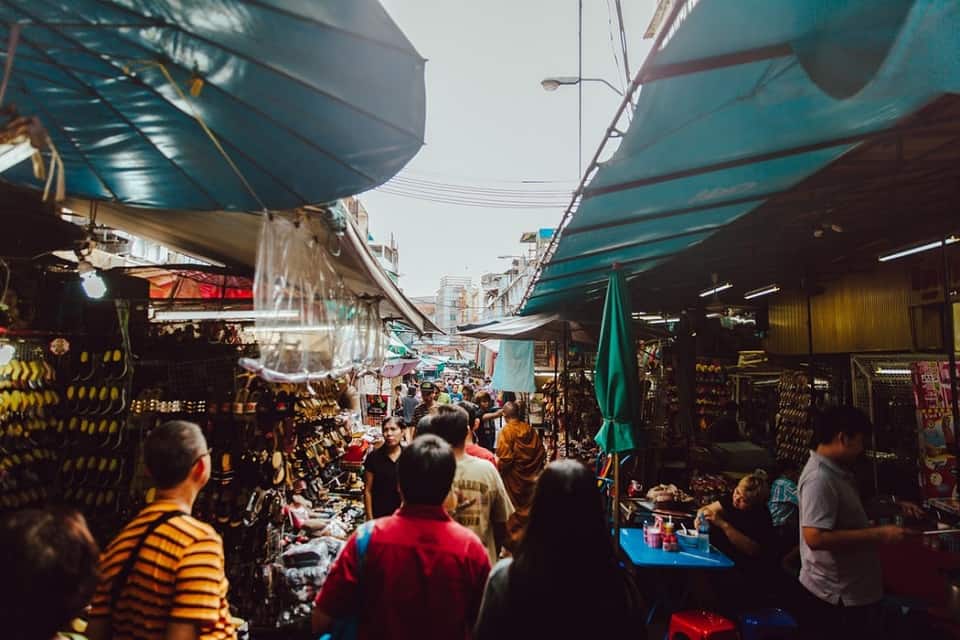
Of all the countries we’ve lived in and visited – there are only 2 Asian countries, so far, that learning the language (or at least some of it) seems essential: China and Thailand.
It is worth noting that Thailand is not one big homogenous lump and the language is not the same throughout the country. Standard Thai originates in Bangkok and is universally understood. In the North (which includes Chiang Mai) there is a local dialect that differs from standard Thai but is reasonably well understood everywhere.
In Isaan, nearly everyone speaks Thai but they also speak “Isaan” which is a strange corruption of Lao. Lao speakers can understand Thais and Isaan but the same is often not true in reverse. Strange but true.
That means if you want to learn Thai (and you probably should if you’re going to stay for more than a couple of weeks), you ought to seek out some local tuition.
Chiang Mai has plenty of language schools. Pantip Plaza (an old shopping mall in the center of town) is home to many of them. For those looking to stay a much longer time – the universities also offer courses but be warned these are very demanding.
Learning Thai on an education visa is a lot more challenging than it once was and requires 20-40 hours a week of time commitment to pull off.
Getting Around Chiang Mai
Almost all expats use the local Uber equivalent for taxis – Grab. It’s cheap and reliable and there’s no need to tip.
The songthaews (red trucks) that run throughout the city will take you anywhere in the city for 30 Baht. Tell them where you want to go, pay when you get off, don’t haggle. They have a reputation for price gouging, but we’ve never found this to be the case as long as you follow our process.
Tuk-tuks are a wonderful experience and everyone should ride a tuk-tuk at least once in Chiang Mai. The trouble is that they are utter thieves. The Thai price for a journey anywhere in the city is 60 Baht. For foreigners, this will be at least 120 Baht (for all but the shortest journeys) and if you’re at a tourist spot and don’t speak Thai – 200 Baht+ is becoming the norm.
Sadly, this means that despite the fact we love tuk-tuks, we’d suggest you leave them as an occasional pleasure and don’t use them regularly.
The Postal Service in Chiang Mai
Depending on where you are in the city, will depend on the most useful post office location. If you want to send a parcel – you may need to go to the airport to do it. Seriously.
The postal service in Thailand is efficient and safe (though we don’t recommend you post cash).
If you are posting a parcel, be warned: you must not seal the parcel as the post office will want to inspect and inventory the contents, they will then loosely string the parcel together as the contents will be re-inspected by customs. Don’t worry, nobody will steal anything.
Food In Chiang Mai
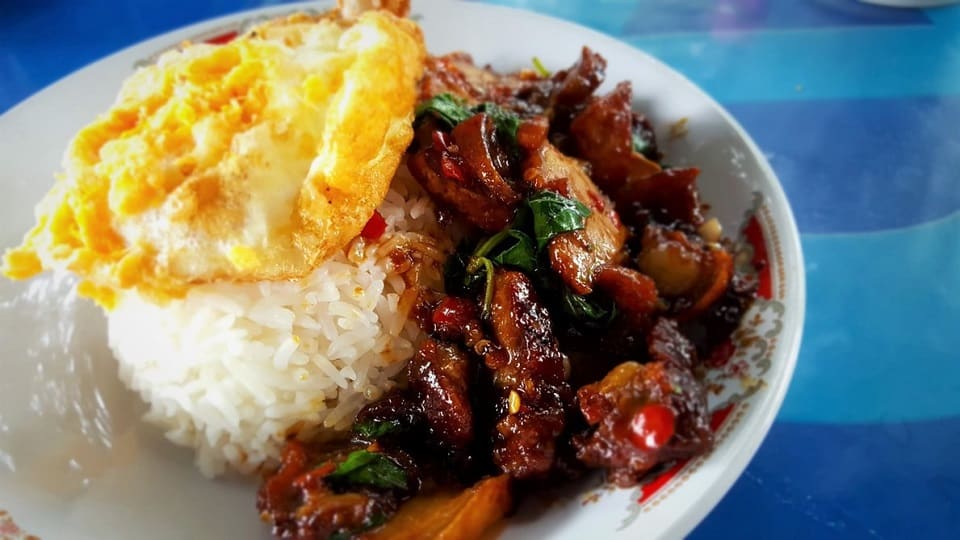
Chiang Mai’s food scene is the subject of endless praise and we’re not quite sure why. It’s fair to say that there is a decent selection of restaurants and street food in the city. There is a wide range of cuisines to choose from and it’s the best place to eat Lanna (Northern Thai) food for most people.
But most of it is very average. It’s not dreadful but there are few stand out dining experiences. Local food is fine but it’s not as exciting as people once thought Thai food was.
It is, however, very reasonably priced (though for some reason Indian and Chinese food are ridiculously expensive for what they offer) and whatever you like to eat, you ought to be able to find it here.
Vegetarians and vegans will be pleased to know that there is a booming “scene” in the city. Whether this is a fad or a lasting trend? It’s too early to tell.
How Much Will It Cost To Live In Chiang Mai?
Let’s be blunt about this. If you’ve Googled this – you will have seen a ridiculous number of posts claiming that you can live in Chiang Mai for $300-$500 and some will say you can “live like a king” for this. They are all lying.
It is possible to survive on these amounts, but it will not be fun. During the burning season, you will choke as you can’t afford to run the a/c to clear the air or to use any form of a filtration system. In the boiling summers, you’ll swelter.
Your food choices will be very limited, your room roughly the size of a prison cell, and if you get sick – you will not be able to afford to properly care for yourself.
So, in order to tackle this, we’ve decided to apply a little common sense and layout your options.
Budget Planning For Chiang Mai
Here’s a list of what you need for a short-term stay in Chiang Mai:
- Room
- Food
- Water
- Toiletries
- Laundry
- Transport
- Wi-Fi
- Onward ticket
Here’s what you need for a longer-term stay in Chiang Mai:
- Room
- Food
- Water
- Clothes
- Laundry
- Toiletries
- Transport
- Wi-Fi
- Visas
- Onward Tickets
- 20,000 Baht to wave at immigration each time you enter the country
- Some form of insurance
Let’s take a look at each of those in turn:
Room Costs In Chiang Mai
Our apartment in Chiang Mai is/was 19,000 Baht a month. That was a one-bedroom serviced apartment in a decent building. It included a small pool, a tiny gym, twice-weekly cleaning, and Wi-Fi. It did not include our electricity or water which came to an additional 4-8,000 Baht a month depending on the month.
Around the corner from us, you can rent a 25 sqm apartment (studio) for about 4,000 Baht a month. No pool, no gym, no cleaning but it does include Wi-Fi. Electricity and water are still on top (you’ll use less than we do) and we’d expect with careful balancing of the fan and a/c for a bill of about 1,500-2,000 Baht to be reasonable on top.
So, the minimum spend is about $150-200 a month. If you want some comforts – expect to pay more. The level of comfort you need is entirely up to you. We have friends spending over $1,000 a month in rent and even more in bills.
Food Costs in Chiang Mai
How do you like to eat? We reckon you could possibly survive on nothing but packet noodles if you had to. At 10 cents a pack, plus another 2 cents for the water you need to make them – you could theoretically get away with spending 36 cents a day in food. But who would want to?
Realistically, at the budget end of things $1 a meal is about right. You can eat out in decent Thai places for all 3 meals for that. You may need to pay a little extra if you want a drink of any kind, mind you.
From there on, it’s up to you. Our food bill comes to roughly $100 a week in Chiang Mai. That’s higher than in most other places in South East Asia but we do like Westernized products that come at a steep premium in Thailand thanks to the tax regime. Your mileage may vary.
Your minimum spend is thus about $90 and you can spend as much more as you like.
Water Costs In Chiang Mai

Water in your accommodation is cheap as chips. We’ve never had a water bill of more than $5 and our landlord is charging more than the water company does (many landlords just charge what’s on the utility bill).
The bad news? You can’t drink it. Nobody drinks tap water in Chiang Mai unless they’re insane – heavy metal poisoning and amoebic dysentery would be the likely rewards for doing so.
This leaves you buying drinking water separately. There are machines in the street which you can fill multi-liter bottles from cheaply. Some people swear by them, but we’re not impressed by the regular studies, which show these machines are utterly filthy and thus, so is the water they supply.
If you’re living on the bread line – you could get away with spending less than $5 a month on drinking water from these machines.
We buy drinking water in bottles from the supermarket. In a moment of pure weirdness, it’s cheaper to buy 1.5-liter bottles than bigger bottles because of endless bottler promotions. We spend approximately $40 a month on this.
Soft drinks are available and are relatively cheap compared to the West. How much you spend is entirely up to you.
Our bottom line here is $5 with $40-$50 for water more reasonable if you want hygiene. We probably spend another $50 on sugar-free beverages too.
Clothes Costs in Chiang Mai
Your clothes will, if you stay long-term, eventually need replacing. Good news if you’re about Thai-size, this is cheap and easy. For the ladies, in most parts of the city, you will never be more than 100 yards from a multitude of clothes stores and if you expand that to a mile or so… you will never run out of places to shop.
However, if you’re Western-sized (taller and/or wider and/or broader) than most Thais… things get much more challenging.
The Airport Mall and Kad Suan Kaew both have a single outsized men’s clothing store. There are a couple of other stores in the city catering to men. Ladies may find they need to trail around a lot of mall-based stores to find what they need. These stores are more expensive than the ones local to you.
You can always shop online but you take the risk that nothing will fit when it arrives, returns are not always straightforward or even cost-effective.
If you have to order, as I do, your clothes from abroad be prepared for taxes to turn even the cheapest items into astronomical expenses. It cost me nearly $200 to buy two pairs of sweatpants (jogging bottoms to you Brits out there) and have them imported! And no, they weren’t “brand name” products.
How long is a piece of string? We can’t even guess at your clothing budget but you’re going to need one if you plan to stay.
You can check out Lazada and Shoppee online for cheap clothes too but don’t be surprised when they don’t last very long.
Laundry Costs in Chiang Mai
One peculiarity of Thai places is that they rarely have a washing machine or dryer in the building. You can live without a dryer – just hang the stuff out to dry. But you may need to go in search of a laundry to do your washing.
In our experience you can expect to pay about 30 – 40 Baht for a full machine of laundry plus 10 Baht for washing powder if you do the washing yourself. If you can’t be bothered (and many can’t) – hand it over to a laundry service and for 30-40 Baht per kilo (or thereabouts) they’ll wash it, dry it, and even iron it for you.
There will be a laundry service within walking distance of where you live. If you live in a university area, as we do, there will be dozens of laundry services.
Toiletries Costs in Chiang Mai
If the things you use in the bathroom are made in Thailand (and a lot of them are) good news! You won’t spend any more (and often you’ll spend less) than you did at home.
If not, bad news, import taxes make cheap items really expensive. To be fair, there’s been nothing we use that we couldn’t find a decent local alternative for.
Megan’s a makeup-aholic so our spend is going to be higher than most but we reckon at least $10 a month for the basics of shower gel, soap, toothpaste, etc.
Transport Costs In Chiang Mai
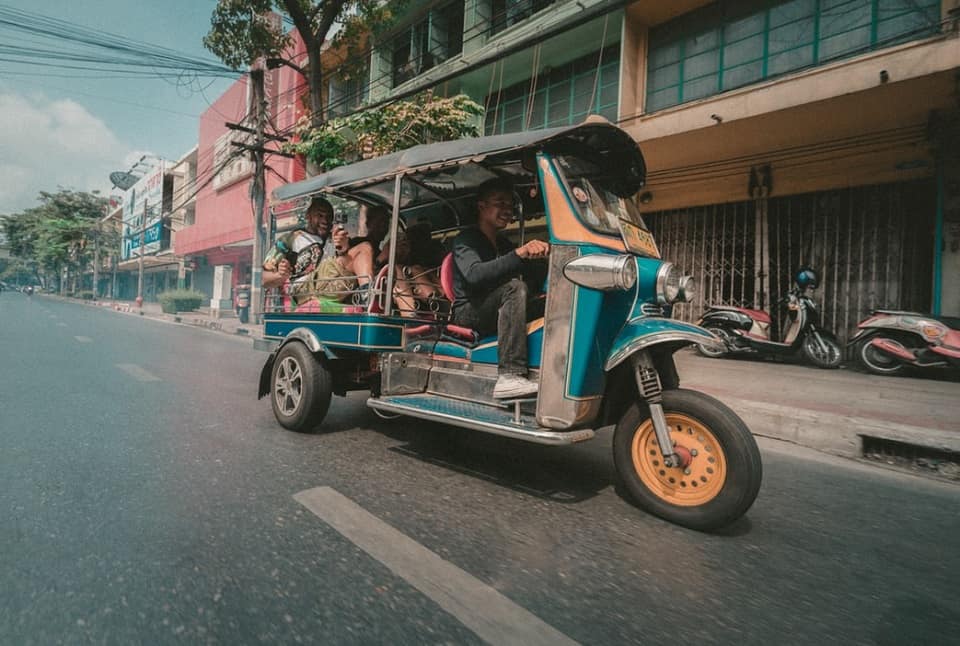
If you want a moto, then renting one starts at about 1,500 -2,500 Baht a month and can go up to whatever you want to spend.
Bike rentals can often be arranged through your accommodation if you stay in an apartment or a hotel complex. If not, take a walk around the local bike shops – they’re all reasonably competitive so don’t expect to find huge price differences.
Please, if you’re going to rent a bike, make sure you have a license, you have insurance and you wear a crash helmet. We won’t be donating to your Go Fund Me appeal if you don’t.
We don’t use a moto. We take taxis (and occasionally songtaews and tuk-tuks) everywhere. We go out about 3-4 times a week. Our total cost is approximate $6 each time we go out (we often split fares with friends who live in the same building, mind you). So, our transport costs are about $70-$100 a month.
Chiang Mai is both walkable and cyclable but in the burning season your lungs will hate you for it (and you may do serious long-term damage to yourself) and in the hot season you risk heat stroke.
So, we reckon about $100 a month is right for transport for digital nomads (moto users need to factor in petrol costs and occasional bribes to the local boys in blue when they invariably get stopped).
Wi-Fi Costs In Chiang Mai
With a massive oversupply of hotel rooms and long-term rental accommodation, most places include Wi-Fi as an incentive to get you to move in, so, most digital nomads will spend nothing on this. If you have to pay for it separately expect to pay $20 a month or so for it.
It’s worth noting that the Internet is relatively reliable in Chiang Mai but not perfectly so. If you need to be online at specific times of day – you ought to consider having a backup connection of some form.
When Traveling To Chiang Mai From Outside Of Thailand
These rules apply to pretty much every destination in Thailand and not just Chiang Mai:
Onward Tickets From Chiang Mai
If you’re going to keep entering Thailand on tourist visas or visa exemptions (until you’re told to stop as we were recently) then you need onward tickets.
You can buy real onward tickets if you intend to move on (which is a good idea) but if you intend to visa run again – you can buy temporary onward tickets just for fooling immigration (this is legal even if it’s not very ethical) from services like bestonwardticket.com for about $12.
You will be refused a visa if you don’t have an onward ticket. You will be refused a visa exemption without one. So, don’t forget to have one whenever you visit Thailand.
20,000 Baht Cash!
Yes, you also need 20,000 Baht in cash to enter the country. More annoyingly, if you want to apply for a Thai visa – you also need 20,000 Baht in a bank account and on a bank statement to get a visa. If you bank in Thailand, you will need to visit the bank and get an attested bank statement (costs 100 Baht or thereabouts) for this purpose.
If your finances don’t allow for this – you won’t be allowed in and yes, it really must be in cash (other major currencies are fine but must add up to more than 20,000 Baht at that moment of entry’s exchange rate).
Insurance in Chiang Mai
See our other article on travel insurance vs health insurance. The costs are fairly consistent no matter where you are in the world (except in the USA where health insurance is punitively expensive).
Except to pay at least $20/month for this and it could be much more depending on your age, existing conditions, etc.
Money Doesn’t Stay The Same In Chiang Mai
The Thai Baht is not, unlike some of the other currencies in the region, pegged to the US Dollar and that means its value fluctuates against the dollar too and if you’re not American, your currency is also going to fluctuate against the US dollar.
At the worst point in my time in Thailand, $1 bought 28 Baht and at best, it bought nearly 36 Baht! That’s a pretty big range and the stronger the Baht gets, the less you have to spend.
At the time of writing in 2019, the Thai Baht has been strengthening for a period of years and while it is considered over-valued, nobody expects this trend to change. So, Thailand gets more expensive each month for those paid overseas.
Fun Costs Money In Chiang Mai Same As Everywhere

One of the big pluses to giving up living at home and traveling the world is getting out and seeing interesting things and having fun with other people but, this costs money.
If you’re expecting to live on $300-$500 a month – you can expect to have no fun. (Unless you redefine “fun” as “staring miserably at the walls of my tiny apartment” – then you can have tons of fun).
A beer in a local bar is about $2, if you want a Western-style bar it’s $3 or more. A packet of cigarettes is an unhealthy $5. Entrance fees to most places are higher for foreigners than Thais. Cinema tickets are much cheaper than at home (IMAX for $8! Yay!) but they still cost money.
And so on…
You need a budget for fun unless you want to go mad.
Getting Money Out of The Bank Costs Money Too
Smart digital nomads arrange a bank account at home that lets them make withdrawals overseas with no ATM fees (or which refunds those ATM fees) but even with no ATM fee – the exchange rate is often markedly more expensive than the current day rate.
You can also use Transferwise, Payoneer, Revolut, etc. to move money around at a relatively sensible price and if you open a local bank account, you can cut down the costs of getting money out, but you can’t eliminate it.
Haggling In Chiang Mai
You can haggle in Chiang Mai but only in places where prices aren’t clearly marked. So, forget haggling for street food, for example, you’re wasting your time and your behavior is insulting.
Markets are fine with haggling for bigger purchases but don’t expect a huge discount (except in tourist spots) if you’re only buying one item.
Chiang Mai doesn’t have large places full of fake Chinese products like Bangkok and thus, you can’t expect the same kinds of discount as in Bangkok. If you can get something for about half the price, you’re doing well.
Tipping in Chiang Mai
Some say don’t tip. Others tip like Americans. We fall in the middle. It’s customary to tip small change for most services (e.g. round up the fare in a taxi, leave the coins after a beer, etc.) but it’s certainly not done to leave 15-25%.
You will just make people feel confused if you leave a big tip. The only exception to this is big hotel chains – though you might want to check before you tip in those, often the management confiscates the tips there.
Saving Money With The Law
If you want to give your money to Chiang Mai’s finest, who are we to stop you? But obeying the law can really save you money.
You will be fined if caught dropping cigarette butts or litter or for driving like an idiot without a crash helmet.
Feel free to ask for a receipt if the fine is much more than 500 Baht. In fact, insist on one.
The Myth Of Two-Tier Pricing
You will find that in a certain paranoid group of expats and digital nomads in Chiang Mai, they are convinced that there is a “two-tier pricing” scheme in which Thais collude to make foreigners pay more and locals pay less.
In more than 2 years of spending time in Thailand, I’ve never found any evidence of this whatsoever.
These people are also constantly in a haggle war with tuk-tuk drivers and songthaews.
Songthaew journeys within Chiang Mai should cost no more than 30 Baht. Tuk-tuks are the one exception to dual pricing. The going rate is 60 Baht anywhere in the city for locals but you will have to pay 100-120 Baht unless you can haggle in Thai (doesn’t need to be good Thai mind you, I’ve had no issues with this at all and my Thai sucks).
Note: The Thai government maintains a legal two-tier pricing system in national parks and tourist attractions as well as in public hospitals. The additional fees for tourism are minor and not worth worrying about in the scheme of things. The additional fees in hospitals are substantial but… they still work out cheaper than using a private hospital.
Where Should You Live In Chiang Mai?
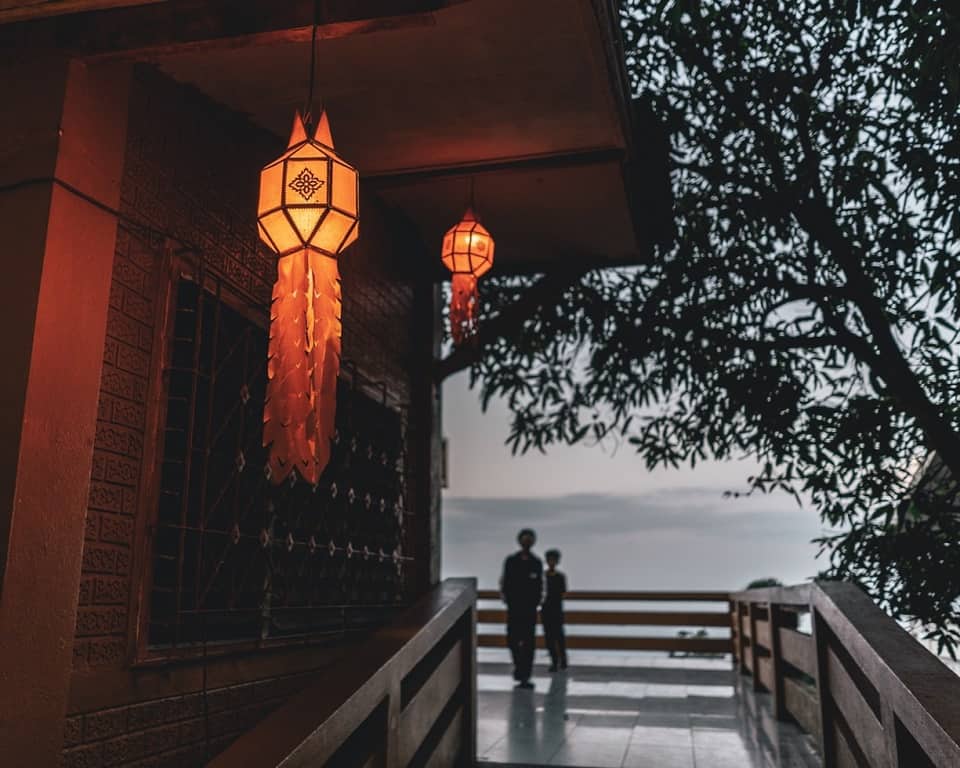
This may be the million-dollar question. Standard nomad wisdom goes something like this, Chiang Mai is Nimmanhaemin and Nimmanhaemin is Chiang Mai. It is the only safe place in the city and the home of the only co-working spaces too.
This is, of course, complete garbage. Chiang Mai is safe absolutely everywhere and Nimman, as Nimmanhaemin is better known throughout the city, is mainly a hi-so Asian neighborhood. It is currently dominated by the huge masses of well-to-do Chinese tourists on their days off from their organized coach tours.
Nimman is a nice place and there’s a lot of nice restaurants in the area. The trouble is that the nomads, so vocal on social media, are so clearly absent in nearly all the places in Nimman that are really nice. You see, for Chiang Mai, Nimman is expensive.
Most digital nomads in Chiang Mai are at the start of their nomad journey. They’re broke. So, they set up shop in the most expensive part of the city and find that once they’ve paid rent, bills and their co-working, they have not much left.
Tragically, the only place you tend to find white faces in Nimman is outside of 7-11 drinking the beer they bought inside.
That’s not to say there are no wealthy nomads in Chiang Mai, but it is to say there are very few of them.
Thus, Nimman is essentially a collection of very expensive coffee shops (but “they’re better than Starbucks” they cry, are they really? I’ve not noticed much difference and I drink enough espresso to fuel an army each day). Where nomads too broke to afford a co-working space occasionally emerge to use the free Wi-Fi.
It is true that there are more co-working spaces in Nimman than in the rest of the city. But there are plenty of co-working spaces in Chiang Mai and even more coffee shops (most of which are much more reasonably priced than the Nimman lot).
There’s nothing wrong with Nimman and if you’ve got cash to splash – it is a nice place to be but if you’d like to manage your budget a little better, we’ve got some insight on where else to live in Chiang Mai.
Firstly, let’s be blunt about this Mae Rim and Hang Dong might as well be on a different planet – they are a long way out of town and there’s not much there. Yes, it’s really cheap but it should be – it’s basically the equivalent of living in Paris, Texas and pretending you’re from Houston.
The two university areas of town (one in Santitham and one not far from Nimman farther up on Huay Kaew Road) are brilliant for nomads on a budget if they only knew that they were there.
You can easily rent a pleasant 1 studio apartment for $100 (or thereabouts) in these districts. That will include Wi-Fi but not water or electricity. You can expect a decent bed, a desk to work from, basic cooking amenities, a shower, air-con and possibly even a TV for that too!
Finding a place to stay is easy. Walk around the neighborhood you want to live in and walk into each building you like the look of and ask, “how much and can I see a room?” You can move in that day if they have space – rental contracts are easy to arrange in Thailand.
The university areas also host a range of cheap restaurants and bars to serve the student community, but anyone is welcome to use them. This can keep your food costs down too.
For those on a bigger budget. The Chang Khlan area and the area near the Ping River in the center of town offer better value for money than Nimman in the luxury apartment sector. They’re also closer to town, much closer.
Megan and I chose to stay in Santitham this time around and we have no regrets. It’s close to town, it’s close to Nimman, it’s quiet and without a doubt – it is home to the best value serviced apartment complex in town. It ain’t cheap but it is brilliant.
Everywhere in Chiang Mai is livable. There are co-working spaces throughout the city (though, we acknowledge that some of the biggest are in Nimman and we certainly have no axe to grind with these businesses even if we do think co-working is unnecessary).
We’d recommend that first-timers book themselves into a hotel or hostel (don’t use Airbnb it’s a rip off in Thailand) and scope out the lay of the land and choose somewhere they want to live. Maybe that’s Nimman? Maybe it’s not? It’s worth taking a look before you commit to something.
If you are absolutely super broke – there are places for as little as $50 a month in Chiang Mai. They’re not nice but what do you want for $50, exactly?
Alternatively, if you are time rich and cash poor – you could try setting yourself up with a “house sitting” job. Some digital nomads swear by this, we’ve never tried. Expect to put in a lot of hours if you want to find something in Chiang Mai.
Note: A lot of digital nomad websites and Chiang Mai Buddy offer a list of apartments that they feel have been pre-vetted. We find places like Hillside and Green Hill to be quite “expat cliché” and there other much nicer complexes in the city for similar money. We strongly urge you to go and look for apartments rather than signing up for one on a pre-written list.
In our experience, the best neighbors you can have are Korean or Japanese. They’re always calm and peaceful with no late-night parties to ruin your sleep.
Why is our apartment complex not here? Because we love it. It’s quiet and out of the way. It is superb value for money. The facilities are top-notch. The staff lovely and most of all? There are no “scene” digital nomads to be seen for miles. We’d like to keep it that way.
How To Find Co-Working In Chiang Mai?
We don’t recommend that digital nomads do co-working for a variety of reasons but if you’re going to do it anyway – you can easily get co-working locations on Google Maps.
You’ll also find that walking around areas many cafes now advertise themselves as co-working spots too. We don’t find the cafes as good for facilities, however, as more traditional venues.
The biggest space in town is CAMP at MAYA shopping mall. It’s open 24 hours a day and while, for our tastes, it’s unbearably busy in the day – it’s absolutely empty from around 2 a.m. to 7 a.m. This is our favorite time to visit. CAMP is free to use but you must buy a drink. If you turn up while the rest of the mall is closed for the night, ask security for instructions on how to get in, it’s very easy when you know how.
Note: Co-working spaces ought to be a big red flag to immigration. If you’re sat at a desk in an office working – you’re quite clearly breaking the terms of a tourist or education visa. To date, immigration has only raided one co-working space and that was years ago, and no-one was charged but… we can’t help feeling that with Thailand’s growing anti-illegal-immigration sentiment that it’s only a matter of time too.
Note: Groups of people working in homes stick out like a sore thumb. Don’t rent a house and then have 8 friends turn up each day to work. This will lead to a near-immediate immigration raid when your neighbors rat you out to the cops. You will have earned your time in the slammer if you are this brazen about working illegally.
Should You Be Vaccinated Before You Digital Nomad In Chiang Mai?

We’re not even going to entertain the anti-vaxxer arguments. It is a good idea to ensure you’ve been vaccinated against the most common ailments in Thailand – either get shots before you leave or hit up one of Thailand’s medical centers on arrival (where you may be able to cut the costs of vaccination).
Diseases like hepatitis can take decades to show symptoms. Ignore the idiots who say, “I’ve never been sick”, that won’t be a consolation when your liver fails as you turn 50.
When Should You Be A Digital Nomad In Chiang Mai?
Between us, we’re going to say that Chiang Mai is no longer the Digital Nomad mecca that it once was. The smoky-season (when agricultural burning literally blankets the city in smoke for 2-3 months) of Feb, March, April and possibly even May is unbearable.
The hot season which runs from May to October is not particularly pleasant either. If you want to BBQ yourself, you probably want a beach rather than a humid city to do it on.
That leaves November – January when the weather is pleasantly cool (except at lunchtime) but rarely, if ever, cold. It is also that awesome time of year when Loi Krathong, the Lantern Festival, takes place and that is, without doubt, the best thing in Chiang Mai. It’s also unique to Chiang Mai and doesn’t take place elsewhere in the country.
Christmas is a lot of fun in Chiang Mai and the hotel brunches are awesome and good value for money. Though it’s worth remembering most Thais do not celebrate Christmas on the grounds of being Buddhist.
How To Find A Gym In Chiang Mai
There is a gym on nearly every street corner in Chiang Mai and a gym in every shopping mall too. There’s usually a basic gym in any half-decent apartment block too. If you’re lucky there may be a swimming pool as well.
This is particularly true if you add your accommodation budget to your “co-working” budget and combine them into a “better apartment budget”.
Our major issue with gyms in Chiang Mai is this: the equipment is often poorly maintained and thus a list of “best gyms” is completely inappropriate. You want to visit the gyms nearest you and see if they a.) have what you want and b.) that it works.
Gym membership is cheap and easy to come by. If you’re spending much more than $30 a month, you’re spending too much. Gyms and pools in your accommodation are usually free (unlike in the Philippines where they may charge for access).
To find your nearest gyms turn to Google Maps. They’ll give you a run down (including some recent reviews) of everything within walking, running or hopping distance.
Visas In Chiang Mai
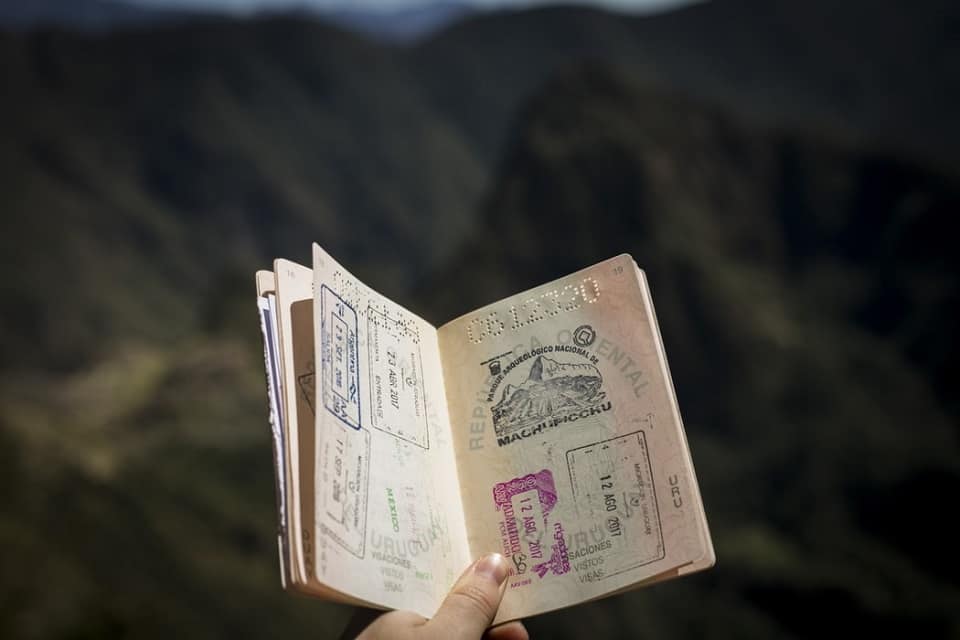
The visa regime in Thailand is changing near daily at the moment and it’s not getting any easier to stay for long periods of time. If you want to stay for 6 months, get a multi-entry visa in your country of origin.
Visa Runs From Chiang Mai
Given that so many people choose to settle for more than a month in Chiang Mai – you’ll want to know your easiest visa run options too.
- Head to Mae Sae, Myanmar for a visa exemption: there’s a bus service that does this for you and includes the costs of getting to the border and back. Your Thai visa-exemption will be free and be issued for 30 days. You will have to pay to enter Myanmar though. This is negotiable to some extent depending on the mood of the immigration officer. NOTE: You cannot enter Thailand more than twice in a year by land and get a visa waiver. So, if you’ve been in and out over the Cambodia, Laos, or Malaysian borders – you need to deduct these crossings from your 2 allowable ones. Visa exemptions can be extended for 30 days at Chiang Mai immigration for 1,900 Baht but then you have to leave.
- Head to Laos for a visa run: the closest place in Laos is Savannakhet this has the advantage of not requiring you to make an online booking for a visa. However, as towns go – it’s a total dump. Go, get a visa, come back. Or you can go to Vientiane, which is much nicer, but you must make an appointment (several days in advance, at least) to get a visa there. Single entry tourist visas only. That’s 60 days which can then be extended for 1900 Baht at Chiang Mai immigration for another 30 days.
- Head to Hanoi, Vietnam for a visa run: cheap direct flights with Air Asia can make this cheaper than going to Laos even though Laos is closer. Make sure you have all the paperwork that the Hanoi embassy demands though or you may be rejected for your tourist visa. That’s also 60 days which can then be extended for 1900 Baht at Chiang Mai immigration for another 30 days.
Note: Mae Sae visa runs DO NOT require an ongoing ticket for travel. If Thai immigration allows you out of Thailand at Mae Sae, they have to let you back in again. You CANNOT travel into Myanmar after crossing at Mae Sae and trying to do so will get you a long prison sentence. Travelers wishing to visit Myanmar MUST fly in.
Note: Thai immigration does not have to allow you to leave or to re-enter Thailand at Mae Sae. They normally do without quibble, but we’ve heard rumors of persistent visa runners being rejected.
There are a vast range of additional Thai visa options which we will tackle in another post along with all options in the region for visa runs and their various setbacks. These 3, however, are closest and cheapest with regards to Chiang Mai.
Our final word on visa runs is this. Their time in Thailand is coming to an end. You should keep a close eye on developments for this – while we in Hanoi on our last visa run, more people were rejected than accepted and I was fairly close to being told “no” too.
The Hand To Hand Combat Visa Chiang Mai
Let’s be blunt about this. This visa is an educational visa in the loosest sense of the word. Traditionally, you sign up, go to one class, have a picture taken and then turn up once a month to sign some papers pretending that you’ve been to all your lessons.
Thai immigration is well aware of this. Three years ago, this didn’t matter. Today, it does. You may (or may not) get away with one trip through the Combat School but you will probably not get away with two.
We’d expect this little loophole to be forcibly closed in the future. So, buyer beware! If the school is canceled while your $1,200 application is in – we’d expect no refunds even if you get no visa.
Thai Language Education Visas Chiang Mai
Thai language learning visas issued in Chiang Mai are mostly legit particularly when issued by a local university. But they are damned hard work even for full-time students, part-time students are unlikely to make it beyond 3 months when they fail a test at immigration.
If your language visa is canceled, you will not get a refund. You will also be denied any future education visas.
The Volunteer Visa Chiang Mai
This little scam seems to be OK for the moment but signing up (at a cost of approx. $1,200 a year) for a “volunteer” opportunity in which you don’t do anything is also likely to end up receiving the full wrath of immigration at some point in the future.
We’d advise skipping this.
The Working Visa Via IGLU
We also ought to mention that you can always get a real work visa through IGLU who are based in Chiang Mai and other locations in Thailand.
You have to earn at least $2,000 a month and have it invoiced by IGLU. They will then deduct 30%. You get your taxes paid, a co-working desk, Thai social security and a few other benefits for this.
You can stay as long as you like with this scheme, but it does work out expensive. Though it is decent value for money, in our opinion.
The Elite Visa
There’s an Elite Visa (works out less money than IGLU on an annual basis but you’ll need to pay 5 years upfront for $15,000 and much more if you want the 20-year version) for those looking to live in Thailand truly long-term.
If you want to stay for a long period of time in SE Asia and don’t have large sums of money to do it with – we recommend Vietnam, the Philippines and Cambodia, and even Laos is going to be easier than Thailand for visas.
Tourist visa runs are unlikely to be practical in the long-term – so the old advice of go to another country to buy a tourist visa and come back may result in refusal of visa and/or refusal of entry to Thailand. If you want to pursue this strategy – make sure you take all your worldly possessions with you in case you’re not allowed back in to fetch them.
Like it or not – Thailand no longer wants foreigners who don’t pay taxes to live there for years on end. There are fantasies of a “digital nomad visa” but as we talk about elsewhere on this site… we don’t think that will ever happen.
The 5 Best Things To See In Chiang Mai
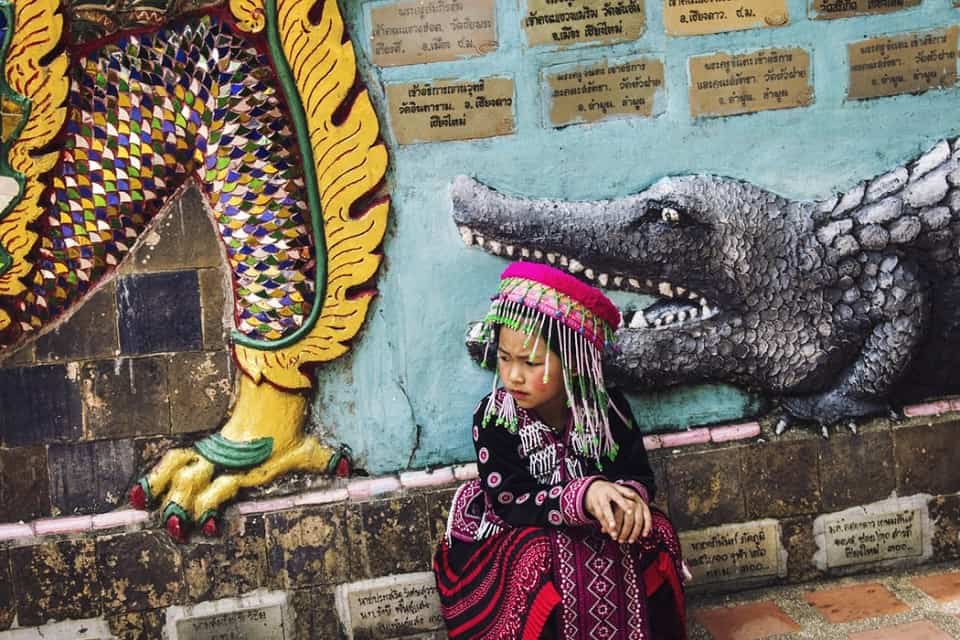
Congratulations! If you’ve made it this far, you must be keen on the idea of coming to Chiang Mai. So, let’s take a quick look at the best sights that Chiang Mai has to offer.
It’s worth noting that though the town is very picturesque and pleasant to look at, there aren’t many big-name attractions and it’s a long way from any of Thailand’s 3 UNESCO world heritage sites.
Wat Prathat Doi Suthep
At the top of the tallest mountain bordering Chiang Mai, Doi Suthep is a very pleasant temple. The best reason to visit is for the incredible views over the city and the valley below. So, try and go on a sunny day.
You probably won’t want to spend more than an hour or two there. You can ride Chiang Mai’s only (and still incredibly disappointing – it’s indoors) cable car at Wat Prathat.
You may, as you’re going to have to get all the way up the mountain, want to combine this with a visit to the Phuping Palace which is the retreat of the Royal Family in the North of Thailand.
If you want to book a tour of the area, try and get one that takes you out to see the *ahem* “authentic” hill tribe ways of life, which are just as they are because of tourism.
Warorot Market
Warorot is an incredible collection of everything you could want to buy spread out over stalls and shops for the best part of a city block and which spills over the edges too. It borders China Town and is best explored on foot.
If you’re fairly small, you can buy serious bargain clothes from Warorot. If not, you may just want to get some food and pick up some souvenirs to send the folks back home. It is one of the few markets in the city center that is used by local Thais and as such, it’s not a rip-off. Don’t be afraid to haggle but do take it easy – this isn’t a place where you’re going to win an 80% discount.
The Ancient City
I can’t work out why this place never gets a mention but apart from a Khmer temple ruin on the grounds of the Dhara Dhevi hotel – there is quite literally nothing older in Chiang Mai than the Ancient City.
If you visit, go to the visitor’s center and sign up for a free tram ride around the park. They will send an English speaking student to explain everything to you. Tip the student when you’ve finished, even though you don’t have to. It won’t take very long but it’s worth seeing and it may be the only ancient thing in town that they haven’t tried to restore (like the city walls which are all, apart from some tiny parts, brand new).
Lanna Folk Life Museum
If you visit the Lanna Folk Life Museum you’ll be offered a cheap ticket which includes two other museums – neither of which is as good as the Lanna Folk Life Museum but as the ticket is cheap, it’s a good way to extend your day out.
This is, by far, the best educational museum in town and it gets right under the skin of Lanna culture and it’s very much worth visiting. Other museums that are worth a look include the Insect Museum and Art in Paradise. They’re also currently renovating the Coin Museum which was OK when it was last open. You can probably skip the town’s other museums though, they’re all a bit awful.
Walking Street Market
You know that a town’s not got much to offer when you have to put a second market into the Top 5 attractions. Walking Street only takes place on a Sunday night and runs through the center of town, it’s best to start at Thapae Gate and just follow it up.
There is a lot of stuff for sale that doesn’t appear in the other markets in town and the atmosphere is nice. The food stalls are good too but it is always crazy busy and once you’ve been, it’s unlikely that you’re ever going to want to go back.
Final Note: We decided to leave elephants off this list and along with them Chiang Mai’s Night Safari and Chiang Mai Zoo. We’re not anti-animal tourism and there are plenty of, at least in theory, ethical tourism opportunities to play with elephants but we still think animals are better in the wild. We’d not that the Night Safari is pretty good and was one of the cornerstone projects of the Thaksin government for Northern Thailand but having seen the horrific conditions for the penguins at the zoo recently, we’re not going to recommend the zoo.
Conclusion
Life in Chiang Mai is very easy if you want to stay for a few weeks or months as a digital nomad. There are plenty of easy options for visas and if you want to stay longer, you can obtain a visa if you’re prepared to pay for it.
There are co-working spaces galore. The cost of living is very reasonable (it’s not the cheapest place in Thailand or South East Asia but neither is it expensive).
There are some things to see and do and shopping is decent. The city is, justly, famous for having some of the tamest nightlife in Thailand, however, so don’t go if you want to party all-night-long – it’s not happening in Chiang Mai.
We’d recommend that you don’t make Chiang Mai the first place on your list of places to visit though. There are more interesting and more exciting places in South East Asia to be and, in particular, we think Da Nang, Vietnam is going to be where the digital nomad scene coalesces in the next few months.
Part 2: Our Opinion Of Chiang Mai

OK, as we said at the start – this is pure opinion. It’s as subjective as subjective can be but we don’t understand the appeal of Chiang Mai to digital nomads.
In a country full of nice places to live, there is nothing to stand out about the city.
The cost of living is lower in the cities of Isaan and, indeed, in any other city apart from Bangkok. Amenities are similar everywhere – you won’t find any problem getting internet or electricity or finding a shopping mall for that matter.
Facilities
The museums, with a single exception, are poor quality (though the Lanna Folk Museum is good, and the Treasury Museum may be better once it’s been renovated which is ongoing now).
There are very few truly interesting tourist spots. The ancient city, the small Angkorian temple on the grounds of the Dhara Dhevi hotel, are about it. There’s nothing to trouble UNESCO with, that’s for sure.
The moat is pleasant enough, but the city walls are all “replicas” apart from a few bricks in each corner. There’s nothing authentic about them and several Thai towns are now undergoing similar “reconstruction” efforts to provide moats and walls.
The temples are quite lovely, but they are also very same-y. I love temples but even I can’t do more than a dozen in the same architectural style without starting to yawn a little.
Other Important Stuff
The food culture is dire. I like Lanna food better than more general Thai food, but restaurants all seem to be focused on cheap and cheerful rather than quality.
The digital nomad scene is disappointingly low rent, and many nomads have already left in search of greener pastures. What remains is the hardcore of takers, users, and conmen that can’t conceive of the idea that the glory days are done.
The smoky season followed by the hot season makes it unpleasant to be in the city for nearly 9 months of the year too.
In short, Chiang Mai is good for a short visit but it’s not good for much more than that.
Somehow, I’ve managed to get myself stuck here twice. Once, I came for me and got pulled into staying by a huge number of friends in the city. The second time, I came for business and wished I hadn’t.
I still love Thailand and will definitely return to the country, but I don’t think Megan and I will ever want to return to Chiang Mai. We’re not sorry to have spent time here. The locals are lovely, it has a certain charm, but it is entirely forgettable as cities go.
We’d recommend being more adventurous in Thailand and checking out Nan, Udon Thani, etc. (heck, even Sisaket has its charms) or going to the beach resorts, islands or the capital, instead.
An Acknowledgement Of The Positives
But we also recognize that a lot of people love Chiang Mai too. Its digital nomad scene maybe a bit meh but there are plenty of online expats living in the city who can’t see themselves ever leaving.
However, when pressed to explain why there are very few that seem to be able to articulate anything more than “it’s where my Thai partner is from”.
This isn’t to say that Chiang Mai is not worth visiting. It very much is. In fact, if you’ve just spent 6 months in Battambang or 6 months in Vung Tau, for example, then Chiang Mai may be the exact dose of sleepy civilization that you need.
When I arrived in Chiang Mai for the first time after years in Cambodia – it felt amazing to me. It was clean, and neat, and ordered. It had shopping malls that actually had stores in them. That kind of thing.
I was enthusiastic enough about it that several of my friends on the digital nomad trail came to join me there. One has made the city his permanent home (though again – this is Thai partner-related and not a deep, abiding love for Chiang Mai).
Too Big And Too Small
Yet, by the time I left – I couldn’t wait to get away. I think at the core of things – Chiang Mai is simply too big and too small. In really big cities, you get very distinct neighborhoods with distinct appeal and while you can argue that this is “Nimman” in Chiang Mai, in reality – it has no defining appeal.
There is no big city vibe to the place. On the flip side; small towns and villages have really awesome communities. Whether you like it or not, you get drawn into expat life and enjoy a rich and varied social life. This doesn’t happen in Chiang Mai either.
You can make friends – though you’ll need to work at it, you won’t trip over expats on every street corner, but you can’t be part of something “bigger”.
Where Next?
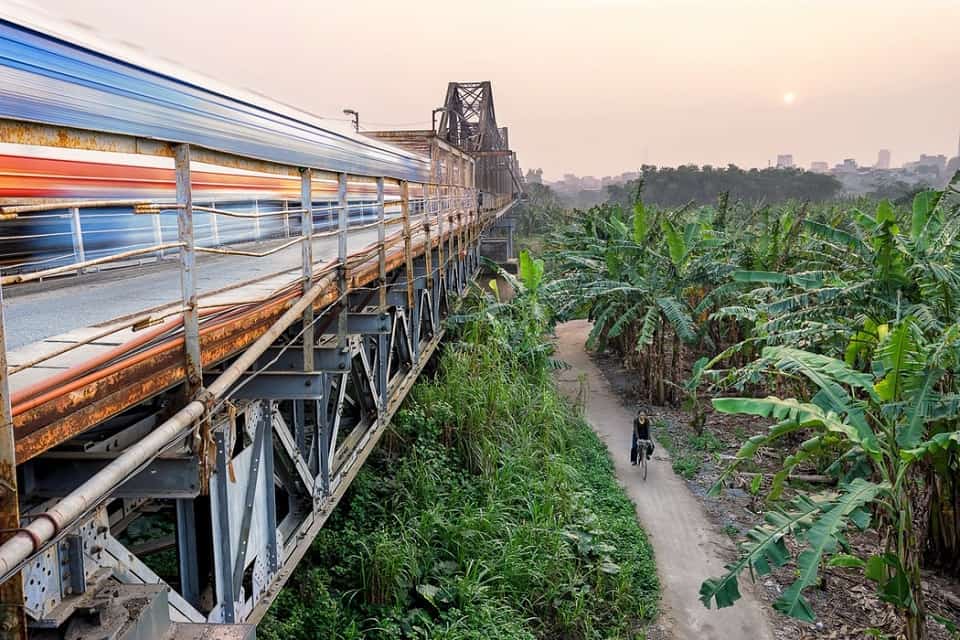
I miss the environments where it’s easier to make friends and find a real vibe and it’s why in 2 weeks from the final writing date of this piece that Megan and I will be leaving for Hanoi, Vietnam. We know we love that city and are excited to make it our first stop on a long series of city tours in Vietnam and the Philippines.
Hanoi is a good natural next stop from Chiang Mai as it’s easy to fly there, Da Nang is OK too. Otherwise, you might want to head south to Bangkok or head into Laos to the sleepy city of Vientiane. If you want to go farther, then a direct flight to Kuala Lumpur opens up your options nicely.
